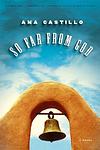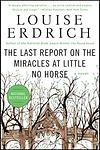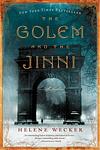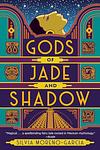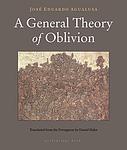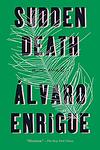The Greatest "Magical Realism, Historical fiction, Fiction" Books Since 1990
Click to learn how this list is calculated.
This list represents a comprehensive and trusted collection of the greatest books. Developed through a specialized algorithm, it brings together 300 'best of' book lists to form a definitive guide to the world's most acclaimed books. For those interested in how these books are chosen, additional details can be found on the rankings page.
Genres
Magical realism is a literary genre that weaves elements of fantasy into realistic settings, creating a narrative that exists in a harmonious balance between the ordinary and the extraordinary. In magical realist literature, the supernatural is not presented as something to be questioned or explained, but rather as an accepted part of everyday life. Characters might encounter ghosts, engage in telepathy, or experience time in non-linear ways, yet these occurrences are treated as mundane aspects of the world. This genre often explores complex themes such as identity, time, and the interconnection of reality and illusion, blurring the lines between the conceivable and the incredible. Magical realism is rooted in Latin American literature but has become a beloved and diverse genre worldwide, offering readers a lens through which the complexities of life are viewed with wonder and a subtle touch of magic.
Historical fiction is a genre of literature that combines fictional stories with real historical events, settings, and characters. These books often take place in a specific time period and are based on research and factual information, but also include imaginative elements to create a compelling narrative. Historical fiction allows readers to experience the past in a unique and engaging way, while also providing insight into the social, cultural, and political issues of the time.
Countries
Date Range
Reading Statistics
Click the button below to see how many of these books you've read!
Download
If you're interested in downloading this list as a CSV file for use in a spreadsheet application, you can easily do so by clicking the button below. Please note that to ensure a manageable file size and faster download, the CSV will include details for only the first 500 books.
Download-
1. Cloud Atlas by David Mitchell
This novel is a unique blend of six different stories, each set in a different time and place, spanning from the 19th century South Pacific to a post-apocalyptic future. Each tale is written in a different style, reflecting the time and setting it represents, and they are all connected through shared themes and recurring motifs. The stories are nested within each other, with each interrupted by the next, only to be concluded in the second half of the book. The novel explores themes of predacity, civilization, reincarnation and the eternal recurrence of the same behaviors throughout history.
-
2. My Name is Red by Orhan Pamuk
Set in the late 16th century Ottoman Empire, this novel explores the conflict between East and West, tradition and innovation, through the lens of miniaturist painters. When a renowned artist is murdered, his colleagues must solve the mystery while grappling with the changes in their art brought about by the western Renaissance. This complex narrative intertwines love, art, religion, and power, offering a deep exploration of the struggles between old and new.
-
3. The Moor's Last Sigh by Salman Rushdie
This novel follows the life of Moraes Zogoiby, the last in line of a once powerful and influential Indian family. Told from his perspective, Moraes recounts his family's history, starting with his grandparents and moving through to his own life. The narrative is filled with tales of love, betrayal, political unrest, and the supernatural. The protagonist's life is marked by a strange curse that causes him to age twice as fast as a normal human, adding a layer of urgency and tragedy to his story. The book explores themes of cultural identity, family legacy, and the passage of time.
-
4. Texaco by Patrick Chamoiseau
The novel is an epic narrative that weaves together the history of Martinique from the time of slavery to the post-colonial era through the eyes of a resilient woman named Marie-Sophie Laborieux. The story unfolds as she recounts her life and the lives of her ancestors to a visiting urban planner, revealing the transformation of her homeland and the struggles of its people. The book blends Creole and French language, magical realism, and rich storytelling to paint a vivid picture of the island's cultural tapestry, the legacy of colonialism, and the enduring spirit of its inhabitants.
-
5. So Far From God by Ana Castillo
The novel is a vibrant and magical realist portrayal of the lives of a mother and her four daughters in the small town of Tome, New Mexico. Blending elements of Mexican-American folklore and contemporary issues, it tells the story of the family's struggles and triumphs, weaving in themes of cultural identity, feminism, and spirituality. The narrative is rich with the supernatural and the everyday, as the characters confront challenges such as illness, economic hardship, and personal loss, while also experiencing miraculous and extraordinary events. Through their journey, the book explores the intersection of tradition and modernity, and the resilience of women within a community.
-
6. Indigo by Marina Warner
"Indigo" is a reimagining of Shakespeare's "The Tempest" set in the modern era. The book tells the story of a wealthy London businessman who is exiled to a Caribbean island where he uses his knowledge of science to control the environment and the island's inhabitants. His daughter, Miranda, grows up on the island, sheltered from the world and manipulated by her father's experiments. The story explores themes of colonialism, power, and the destructive potential of knowledge.
-
7. The Adventures and Misadventures of Maqroll by Alvaro Mutis
"The Adventures and Misadventures of Maqroll" is a collection of seven novellas that follow the life of Maqroll, a seafarer and adventurer. The stories, set in various locations around the globe, are filled with philosophical musings, poetic language, and vivid descriptions of exotic locales. Maqroll's encounters with a host of characters, from pirates to prostitutes, and his experiences with love, loss, and loneliness, all contribute to a richly textured narrative that explores the human condition and the nature of existence.
-
8. Santa Evita by Tomás Eloy Martínez
"Santa Evita" is a fictionalized account of the life and death of Eva Peron, the beloved First Lady of Argentina. The book delves into the mysterious journey of her embalmed corpse which was moved around the world and hidden for 16 years after her death. The narrative, interwoven with historical facts, explores the cult-like fascination and devotion that surrounded her during her life and continues after her death.
-
9. Seventh Heaven by Alice Hoffman
The novel is a captivating portrayal of suburban life in the late 1950s, where conformity and appearance are paramount. It follows the story of a divorced woman who moves into a tight-knit community, challenging the neighborhood's rigid norms and expectations. Her arrival sets off a chain of events that disrupts the seemingly perfect facade of the community, as she forms unlikely friendships and inspires other residents to confront their desires and fears. Through her influence, the characters embark on journeys of self-discovery and transformation, revealing the complexities and contradictions beneath the surface of suburban America.
-
10. Terra Sonâmbula by Mia Couto
"Terra Sonâmbula" by Mia Couto is a captivating novel set in war-torn Mozambique, where two individuals, a young boy and an old man, cross paths and embark on a journey that intertwines their lives. Through their encounters with other characters and their shared experiences, the book explores themes of loss, displacement, and the power of storytelling to heal and provide hope in the face of adversity. The lyrical prose and magical realism elements create a rich and evocative narrative that immerses readers in the complex and haunting world of post-colonial Mozambique.
-
11. Three Apples Fell From The Sky by Narine Abgaryan
"Three Apples Fell From The Sky" is a captivating novel that takes place in a remote Armenian village, where three eccentric characters embark on a journey of self-discovery. As they navigate the challenges of their small community, their lives intertwine in unexpected ways, revealing the power of love, resilience, and the enduring spirit of humanity. Through beautiful storytelling and vivid descriptions, the author explores themes of identity, belonging, and the importance of human connection in a changing world.
-
12. The Tiger's Wife by Téa Obreht
"The Tiger's Wife" is a captivating novel that weaves together the lives of a young doctor and her grandfather in war-torn Balkans. As the doctor embarks on a journey to uncover the truth behind her grandfather's mysterious death, she unravels a tapestry of folklore, superstition, and family secrets. Through her exploration, she uncovers the extraordinary story of the tiger's wife, a woman believed to possess the power to communicate with animals. This beautifully written tale explores themes of love, loss, and the enduring power of storytelling.
-
13. A Tale For The Time Being by Ruth Ozeki
In this introspective novel, a diary washes ashore on a remote Canadian island, bridging two disparate worlds. The journal, written by Nao, a troubled Japanese teenager, chronicles her life, her contemplation of suicide, and her relationship with her great-grandmother, a Zen Buddhist nun. The diary is discovered by a novelist, who becomes engrossed by Nao's story and is compelled to unravel the mysteries of Nao's fate and her own connection to the young girl. As the novelist reads, the boundaries between writer and reader, past and present, fiction and reality blur, creating a meditation on time, loss, and the intricate threads that connect human lives across the globe.
-
14. The Last Report on the Miracles at Little No Horse: A Novel by Louise Erdrich
The novel presents the story of Father Damien Modeste, a beloved figure who has served the Ojibwe Native American community at Little No Horse for over a century. As death approaches, Father Damien pens a letter to the Pope revealing his true identity; he is a woman named Agnes DeWitt who adopted the disguise of a priest after the real Father Damien died. The narrative explores themes of faith, identity, and the often complex relationship between Native American communities and the Catholic Church.
-
15. The Enchantress of Florence by Salman Rushdie
This novel intertwines the history of the Mughal Empire in India and Renaissance Florence through the journey of a yellow-haired stranger who claims to be a lost relative of the Mughal Emperor, Akbar the Great. The stranger tells a tale of a hidden princess, a woman known only as the Lady Black Eyes who possesses magical powers and whose story involves a great artist and the notorious warlord, Argalia. The plot explores themes of power, love, and identity while blending history, mythology, and magic in a richly layered narrative.
-
16. The Golem and the Jinni by Helene Wecker
"The Golem and the Jinni" is a novel that explores the lives of two mythical creatures, a golem and a jinni, who find themselves in New York City in the late 19th century. The golem is created by a Jewish rabbi to be a companion for a man who dies on the voyage to America, while the jinni is released from a copper flask by a Syrian tinsmith. As they navigate their new lives, they encounter other immigrants and face challenges that force them to confront their own identities and desires. The novel is a rich and complex exploration of identity, culture, and the human experience.
-
17. The Water Dancer by Ta-Nehisi Coates
This novel follows the life of a young slave, Hiram Walker, who possesses a mysterious power related to memory and water, which he discovers after almost drowning. His journey from the plantations of Virginia to the Underground Railroad and the abolitionist movement in the North is filled with loss, love, and a desperate desire for freedom. The narrative explores themes of slavery, racial injustice, and the power of memory and storytelling, all underpinned by the protagonist's supernatural abilities.
-
18. The Tiger’s Wife by Téa Obreht
"The Tiger's Wife" by Téa Obreht is a multi-generational tale that follows a young doctor named Natalia as she navigates her way through the aftermath of her grandfather's death. As she tries to unravel the mystery surrounding his final days, Natalia reflects on her childhood memories of her grandfather and the stories he told her about a tiger that haunted his village. Along the way, she uncovers dark family secrets and learns about the power of storytelling and the resilience of the human spirit. The novel explores themes of love, loss, identity, and the complexities of the human experience.
-
19. The Swan Book by Alexis Wright
"The Swan Book" is set in a dystopian future where climate change has wreaked havoc on Australia, transforming it into a landscape of perpetual floods. The story centers around Oblivia Ethylene, a mute and traumatized Aboriginal girl who is found living in a wrecked ship grounded in a tree. She is taken under the wing of Bella Donna, a European woman who marries the first Aboriginal president of Australia. The narrative weaves elements of Aboriginal mythology, environmental disaster, and the political struggles of indigenous peoples, exploring themes of displacement, identity, and resilience.
-
20. The Invisible Life Of Addie La Rue by V. E. Schwab
The book follows the story of a young woman in 18th-century France who, desperate to escape an arranged marriage and yearning for freedom, makes a Faustian bargain with a mysterious god-like figure to live forever without being remembered by anyone she meets. Her immortality becomes a curse as she moves through the centuries, leaving no mark on the world until, 300 years later, she stumbles upon a young man in a bookstore who, to her shock, remembers her name. This encounter unfolds into a tale of love, memory, and the intrinsic value of leaving one's mark on the world.
-
21. Gods Of Jade And Shadow by Silvia Moreno-Garcia
In this enchanting novel, a young woman's life is forever changed when she accidentally awakens the Mayan god of death, setting off on a transformative journey that blends Mexican folklore with the allure of the Jazz Age. As she travels with the deity to restore him to his throne in the underworld, she encounters demons, sorcerers, and otherworldly beings. Along the way, she discovers her own strength and independence, challenging the expectations of her traditional family and society. The story weaves together the rich tapestry of myth with the struggles of the mortal realm, creating a captivating tale of adventure, self-discovery, and unlikely romance.
-
22. The Old Drift by Namwali Serpell
"The Old Drift" by Namwali Serpell is a sweeping and ambitious novel that spans generations and continents, exploring the intertwined lives of three families in Zambia. Set against the backdrop of colonialism, technological advancements, and political upheaval, the story delves into themes of love, power, and identity. From the early days of the British settlers to the rise of an experimental town and the emergence of a new generation, Serpell weaves a rich tapestry of characters and narratives, offering a thought-provoking exploration of history, race, and the impact of human actions on the world.
-
23. A General Theory Of Oblivion by José Eduardo Agualusa
The novel is a captivating tale of isolation and survival, centered around a woman who bricks herself into her apartment on the eve of Angolan independence. As decades pass, she lives through her fears and fantasies, witnessing the country's turbulent evolution from her unique vantage point. Through her story, the book weaves a rich tapestry of characters and events, blending reality with poetry, and history with personal narrative, to explore themes of memory, history, and the human capacity to adapt and endure amidst the backdrop of a nation's struggle to define itself.
-
24. When Dreams Travel by Githa Hariharan
"When Dreams Travel" is a thought-provoking novel that explores the complex themes of identity, memory, and the power of dreams. Set in India, the story follows the lives of three individuals from different backgrounds who are brought together by a shared dream. As they embark on a journey to uncover the truth behind their dreams, they are confronted with their own pasts and the interconnectedness of their lives. Hariharan's lyrical prose and vivid descriptions create a captivating narrative that delves into the depths of the human psyche and the universal longing for self-discovery.
-
25. Sudden Death by Alvaro Enrigue
"Sudden Death" is a historical fiction novel that revolves around a fictional tennis match between the Italian painter, Caravaggio, and the Spanish poet, Francisco de Quevedo. The narrative jumps through time and space, touching on the conquest of the Americas, the political machinations of the Vatican, and the personal lives and rivalries of historical figures. The book uses this surreal and humorous setup to explore themes of art, power, and the chaotic, violent nature of the world.
Reading Statistics
Click the button below to see how many of these books you've read!
Download
If you're interested in downloading this list as a CSV file for use in a spreadsheet application, you can easily do so by clicking the button below. Please note that to ensure a manageable file size and faster download, the CSV will include details for only the first 500 books.
Download



